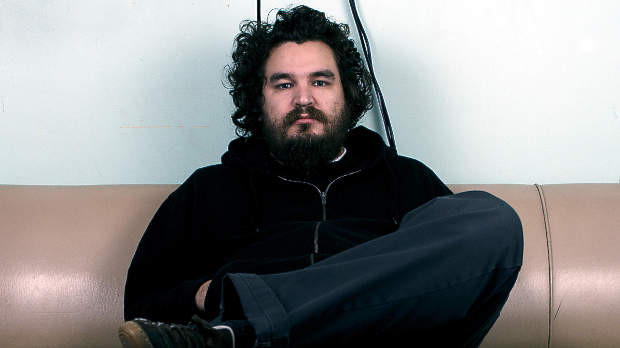Panos Cosmatos
 Panos Cosmatos
Panos Cosmatos


When Panos Cosmatos was growing up on Vancouver Island, his parents wouldn’t let him watch scary movies. He’d go to his local video store and, he says, “spend hours looking at the box covers of the horror and science fiction films, just imagining my own versions of them.” One of the first R-rated films he was able to see was Alien. “My parents were watching it in the living room,” he explains, “and I was supposed to be in bed. But I snuck into this other room where I could see the film reflected on a framed print that was hanging behind them.”
For Cosmatos, those early experiences were the inspiration for his trippy, visually mind-blowing Beyond the Black Rainbow, which premiered at Vancouver’s Whistler Film Festival and played this past spring at Tribeca. Set in 1983 — and feeling as if it was actually made in 1983 too — it’s a hazily remembered waking dream of a picture about a tormented scientist (described in Cosmatos’s script as “an aging surfer calcified into a reptilian wax vampire”), who is subjecting a beautiful young captive to a series of unsettling mind control experiments. The film has secrets, plot twists and a daring escape, but it is more focused on tone, feelings and sensations than linear plotting. “I wanted the film to be like slow motion suspense — almost like macroscopic suspense,” he says. Indeed, watching Beyond the Black Rainbow is like remembering a scary film you saw as a kid, with story details receding while startling images and feelings of anxiety, dread, but also wonder, remain lodged in your head. “Remembering those video box covers was the key inspiration for the film,” Cosmatos says. “It was the idea of making a remembered, or imagined, film.”
Cosmatos spent three years developing and making Beyond the Black Rainbow, a period following several years during which he basically taught himself filmmaking. “I made a lot of experimental shorts that I only showed in this local festival on Vancouver Island,” he says. “I did cover art and graphic design for some bands, and I watched a lot of movies and read about films. That was basically my film school.” Given Cosmatos’s self-teaching, the technical accomplishment of Beyond the Black Rainbow is astonishing. Shot widescreen with 35mm two-perf on a blend of constructed sets and found locations, it boasts a gorgeously retro design sensibility evoking both 2001 and early Cronenberg.
Ask Cosmatos about influences and you’ll get a varied list ranging from writer William Burroughs to fantasy artist Frank Frazetta to ’80s electronic music, but there’s also the influence of his dad, George Cosmatos, who directed such Hollywood films as Rambo: First Blood Part II. “I love popcorn movies just as much as I love bizarre art films,” Cosmatos says. “My mother was an experimental abstract sculptor, and I have always felt that my filmmaking sensibility is a weird hybrid of the two of [my parents].” The elder Cosmatos died in 2005 and it was the residuals for his movie Tombstone that financed Beyond the Black Rainbow.
Beyond the Black Rainbow is so accomplished that it’s easy to expect Cosmatos to step into a larger-budget sci-fi project next time out. But the director seems intent on following his own muse, which for the next film will be heavy metal. “This [movie] was my experimental electronic album,” he says. “The next one I want to do will be more like a Black Sabbath record. It will be a bit more propulsive.” — Scott Macaulay
Contact: Joshua Sandler: jsandler@gkd-law.com
